ISTP News
All stories that have been tagged with Highlights
The Urban Research Incubator (URI) of the ISTP participated in the Urban Development Round Table 2020
Highlights
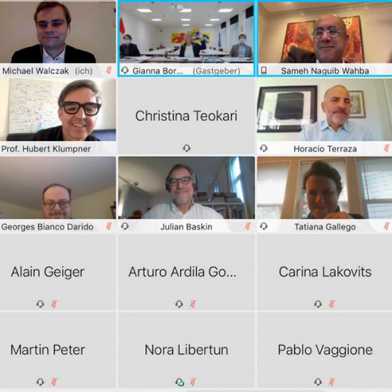
In collaboration with SECO, the virtual "Urban Development Round Table," which took place on Tuesday, November 10, brought together some of the world's major players and funders of urban development, including the World Bank, the Cities Alliance, the Cities Development Initiative for Asia, and IDB. Reaching out beyond academia, Prof. Hubert Klumpner and Michael Walczak had a chance to explore how to devise collaborative solutions to the most pressing urban challenges.
Reflecting on the NEO/ISTP Panel Discussion on 4 March 2020: Corporate Responsibility in the Minerals Sector
Highlights
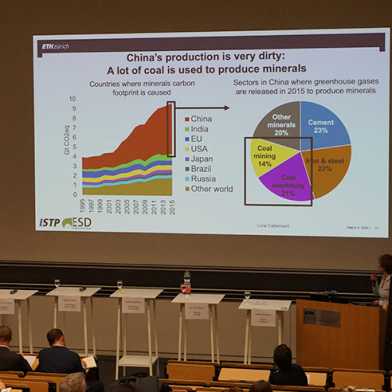
Minerals constitute the essential raw materials to sustain the present-day civilization. We need coal for energy, iron ore for steel and various other minerals for many other essentials. Mining of such minerals however, has major effects on the natural and social environment. This panel gave insights into the minerals trade of Switzerland and its environmental impacts. It emphasized the need for transparency, commitment and implementation of performance standards within the sector.
Ultra-High Field Magnetic Resonance Imaging: Towards an Imaging Based Healthcare
Highlights
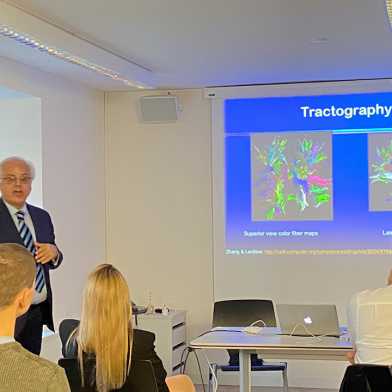
We would like to warmly thank Prof. Alayar Kangarlu, Director of the physics and engineering group at NYSPI MRI research center at Columbia University, for his visit to the ISTP and his interesting talk on ultra-high field magnetic resonance imaging and their importance in medicinal research and diagnostics.
New tools for an old problem: Ending deforestation and fires in the Brazilian Amazon
Highlights
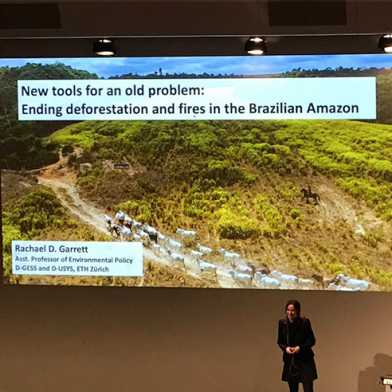
Facts & not fiction. Cattle are still responsible for primary forest loss in the Brazilian Amazon. Professor Rachael Garrett’s recent inaugural lecture on deforestation - causes and necessary policy changes to combat proximity to a tipping point (of no return) - was a real tour de force.
Understanding Human Behavior through Digital Traces: the Case of Collective Emotions
Highlights
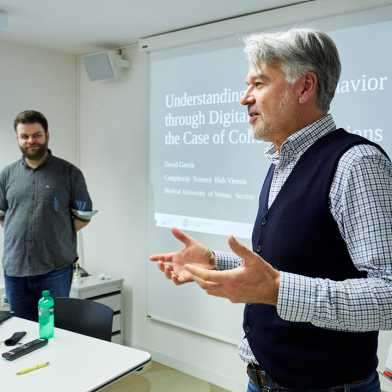
Dr David Garcia is a computational social scientist who focuses on explaining social phenomena through computational models of human behaviour. He is currently a group leader at the Complexity Science Hub Vienna and Medical University of Vienna, Austria. We would like to warmly thank Dr David Garcia for his visit to the ISTP and his interesting and insightful talk.
Science, Technology and Policy Alumni General Assembly and Alumni Talk
Highlights
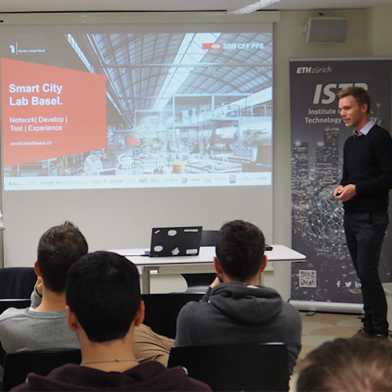
On the 4th of December 2019, the Science, Technology and Policy Alumni faculty group (STP Alumni) held its second event of the year and the first occurrence of its Alumni Talk series. The event was split into two parts, a small general assembly followed by the keynote from Alumnus Philippe Stadler Benz about his work at the Smart City Lab Basel. (Re-post from ETH Alumni News)
Congratulations to ISTP PhD Student Michael Wicki
Highlights
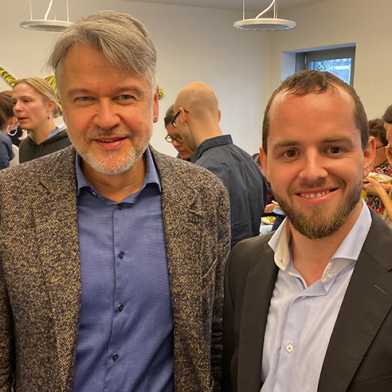
We are delighted to announce that ISTP PhD student Michael Wicki successfully defended his thesis on Wednesday, 18 December 2019. We would like to congratulate him warmly and wish him all the best for his future career!
Learning from Mobility Research for Policy
Highlights
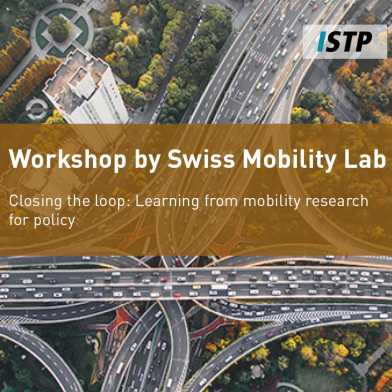
As part of Swiss Mobility Lab’s work at ISTP, the Lab hosted an interactive workshop on Monday, 9 December 2019 to share its research results and exchange ideas with invited policy-makers and planners.
Borderland Urbanism: Infrastructure for Fragmented Cities
Highlights
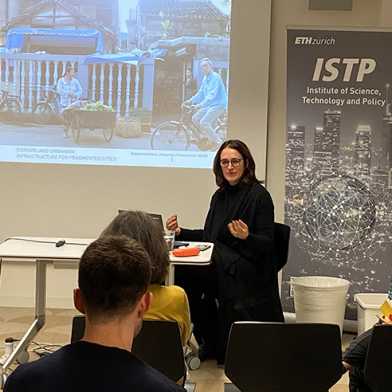
Dr. Iossifova presented a new research program on the infrastructure for fragmented(ing) cities. This Colloquium's focus was Shanghai – Borderland formation, urban sanitation transitions and related policy challenges in a rapidly evolving socio-eco-technical system. Dr. Iossifova is senior lecturer in Urban Studies and director of the Confucius Institute at the University of Manchester.
Can corporate forest policies achieve global conservation objectives?
Highlights
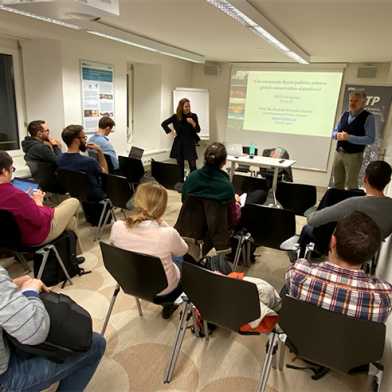
Prof. Dr. Rachael Garrett is the newly appointed Assistant Professor of Environmental Policy with dual affiliations with the Dept. of Humanities, Social and Political Science (D-GESS) and the Dept. of Environmental Systems Science (D-USYS). At the last ISTP colloquium, she presented her research on the potential of forest-focused supply chain policies (FSPs) for meeting global conservation objectives.
Street Art and Urban Planning: The case of informal settlements in Bogotá
Highlights
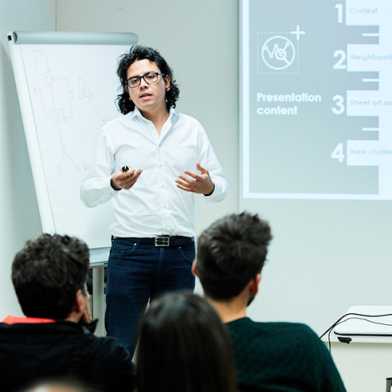
We would like to warmly thank Andrés Sepúlveda, urban planner for the Department of Habitat of Bogotá and lecturer of urban development at the El Bosque University in Bogotá, for his visit at ISTP and his talk about the use of street art as an urban planning tool in the case of informal settlements in Bogotá.
Foreign aid and subnational variation in state capacity: Evidence from Colombia
Highlights
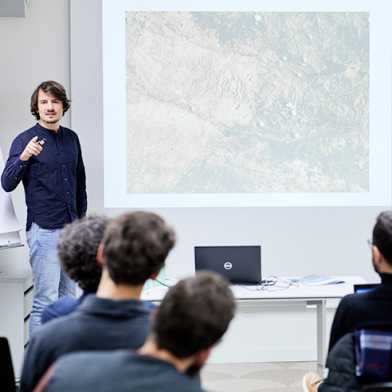
We would like to warmly thank Dr. Sebastian Ziaja, researcher in the programme "Transformation of Political (Dis-) Order" at the German Development Institute / Deutsches Institut für Entwicklungshilfe (DIE), for his visit to the ISTP and his talk about the effects of foreign aid on state capacities on the subnational level.
Science, Technology and Policy Alumni Kick-off
Highlights
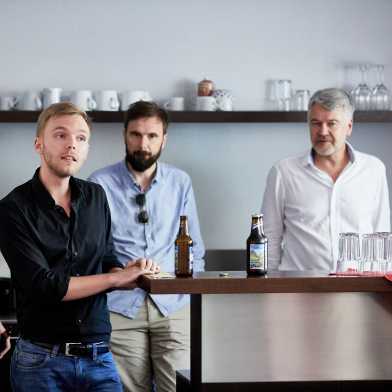
After its creation this summer, the Science, Technology and Policy (STP) Alumni Faculty Group officially kicked off with a welcome Apéro on the 13th of September 2019. Students from each cohort since the creation of the Institute of Science, Technology and Policy of ETH Zürich gathered and welcomed the institute's new students to their exciting journey ahead.
Taxes, Subsidies or Regulation: Why have Britain’s carbon emissions from electricity halved?
Highlights
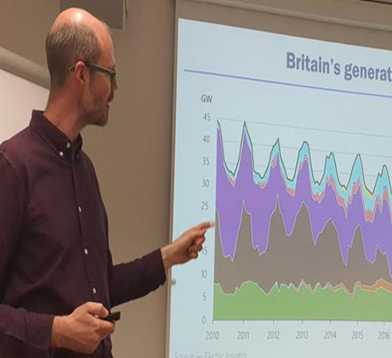
We would like to warmly thank Dr Iain Staffell, a multidisciplinary scientist working at the Centre for Environmental Policy at Imperial College London, for his visit to the ISTP and his fascinating and insightful talk on what drove Britain's massive power sector decarbonization between 2012-19 and the lessons for other countries with heavy fossil-fuel dependency.
Energizing Development: Scaling Decentralized Electricity Systems in East Africa
Highlights
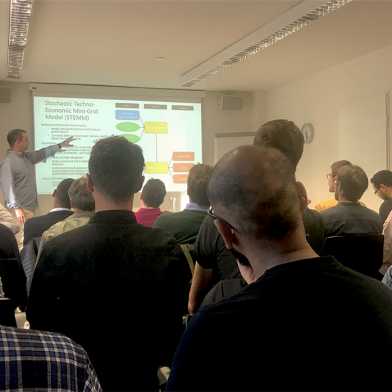
We would like to warmly thank Prof. Nathan Williams, Assistant Research Professor at Carnegie Mellon University, for his visit to the ISTP and his fascinating and insightful talk on decentralized energy systems in East Africa.
High stakes, High Hopes: Urban Theory in Partnership
Highlights
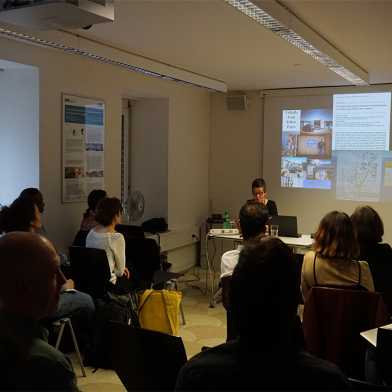
We would like to warmly thank Prof. Sophie Oldfield for her visit to the ISTP and her interesting and insightful talk on collaborative urban theory.
Reflecting on the 6th Symposium on Science, Technology and Public Policy
Highlights
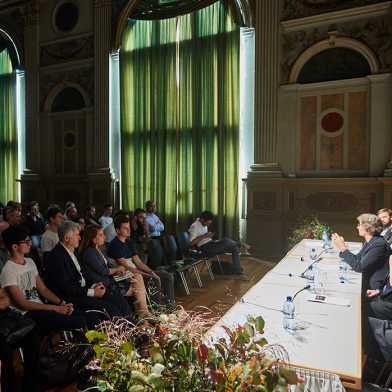
We would like to warmly thank Prof. Ambuj Sagar from the Indian Institute of Technology, Prof. Noelle Selin from the Massachusetts Institute of Technology, and Prof. Joanna Chataway from the University College London for their visit to the ISTP and their interesting and insightful discussion with Prof. Sarah Springman and Prof. Tobias Schmidt about the importance of science and technology in public policy-making.
Symposium on Science, Technology and Public Policy (SiP #6)
Highlights
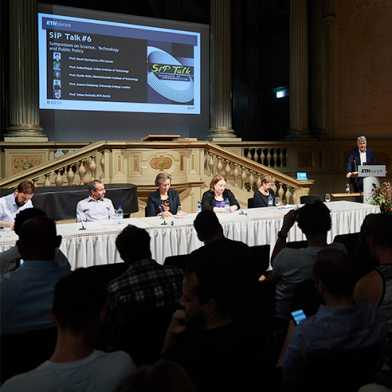
On Tuesday, 17th September 2019, 17:15 - 18:45, the 6th SiP Talk was held in the Main Building of ETH Zürich (HG G 60). Guest speakers of world leading technical universities talked about key societal challenges whose solutions are likely to emerge at the intersection of science, technology, and public policy, discussing how to institutionalize policy-focused, interdisciplinary research, as well as teaching in this field.
IDEA League Challenge meeting hosted by ISTP – Addressing complex societal challenges through policy and planning
Highlights
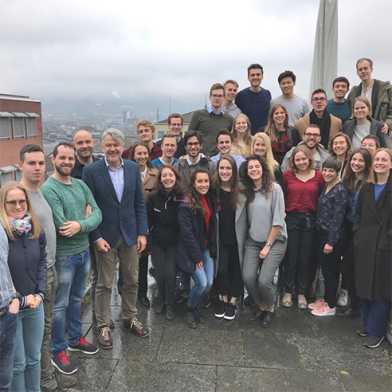
“Do you know how to navigate the real-world systems in which technologies live?” Thirty students from five technical universities across Europe were confronted with this question at the start of a three-day meeting. This was the last of four meetings, the previous of which had been hosted by Politecnico di Milano, Chalmers University of Technology and RWTH Aachen University. The event at ETH Zurich was hosted by the Swiss Mobility Lab between Friday 12th and Sunday 14th April.
How to Maintain and Expand the Swiss National Wealth: A Personal Perspective
Highlights
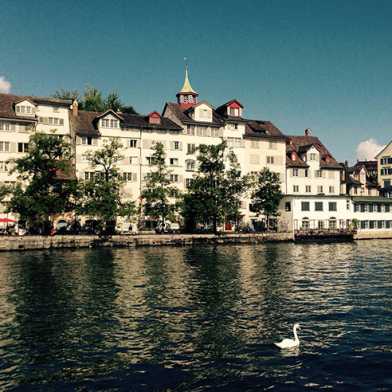
We would like to warmly thank Prof. Reza Abhari for his talk at the ISTP and his interesting insights on how to maintain and expand Swiss national wealth.
Linking Science and Policy Analysis to Address Climate Change and Air Pollution
Highlights
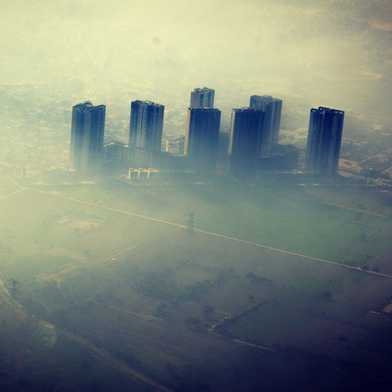
We would like to warmly thank Prof. Noelle Eckley Selin for her visit to the ISTP and her interesting and insightful talk on climate change and air pollution.
Why Scientists and Engineers Should be Storytellers
Highlights

Prof. Bauke Steenhuisen from the Technology, Policy and Management (TPM) Faculty at TU Delft, Netherlands, visited the ISTP to talk about the importance of storytelling.
Soft-path solutions for hard water problems
Highlights

Prof. Andrea Castelletti from the Natural Resources Management Group at Politecnico di Milano visited the ISTP to give a talk on soft-path solutions for hard water problems in the Italian sub-alpine lake district.
Economic and Demographic Effects of Emergency Risk Communication: Evidence from the Fukushima Daiichi Nuclear Disaster
Highlights

Prof. Hiroaki Matsuura Provost and Vice President (Academic) at Shoin University in Japan visited the ISTP on October 2nd to talk about the Economic and Demographic Effects of Emergency Risk Communication based on Evidence from the Fukushima Daiichi Nuclear Disaster.
The politics of climate change and the role of environmental economics: Australia's case
Highlights

Prof. Frank Jotzo of ANU (Australian National University) Crawford School of Public Policy visited ISTP on September 20, 2018 to talk about the recent history of Australian climate change policy and the politics surrounding it. He also presented results from ongoing research on the energy transition away from coal to renewable energy sources.
IDEA League Summer School 2018 in Filzbach, Switzerland
Highlights
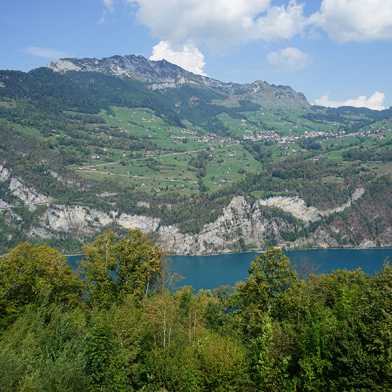
The 5-day IDEA League summer school, organised by ISTP, was a success with the participation of 56 students from eleven leading universities, debating how they, the next generation of thinkers and leaders can use their disciplinary knowledge to reduce society’s environmental footprint.